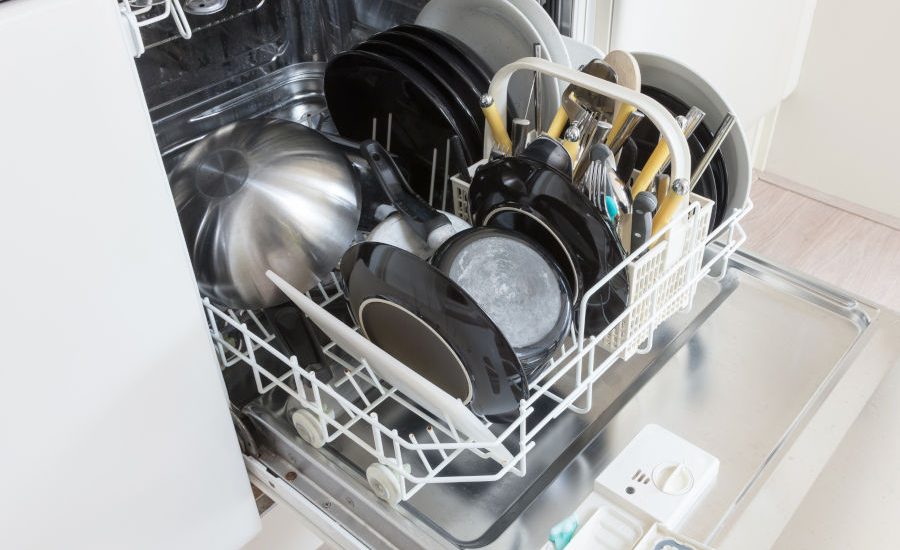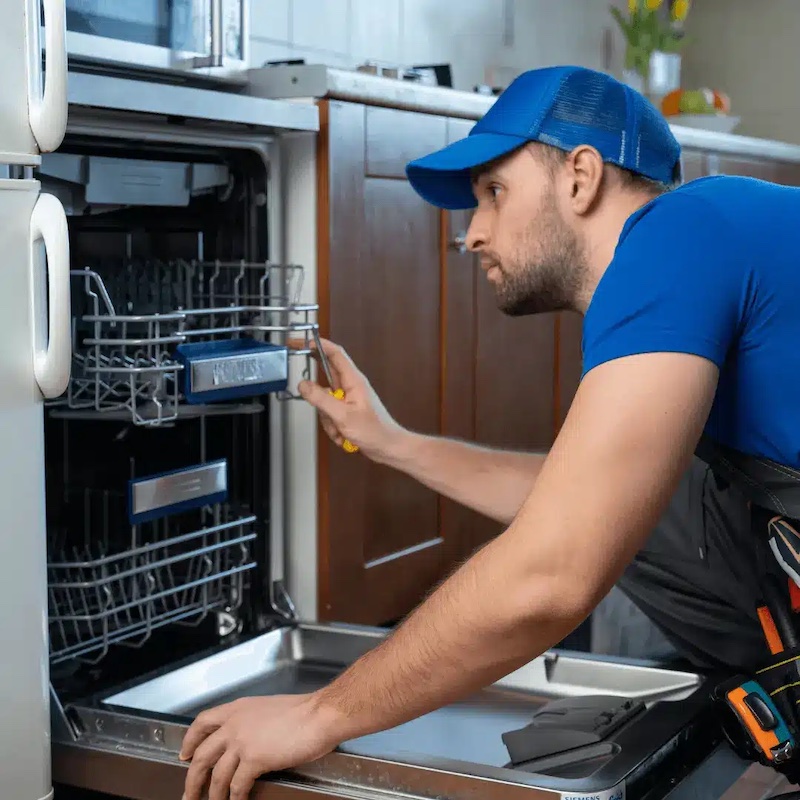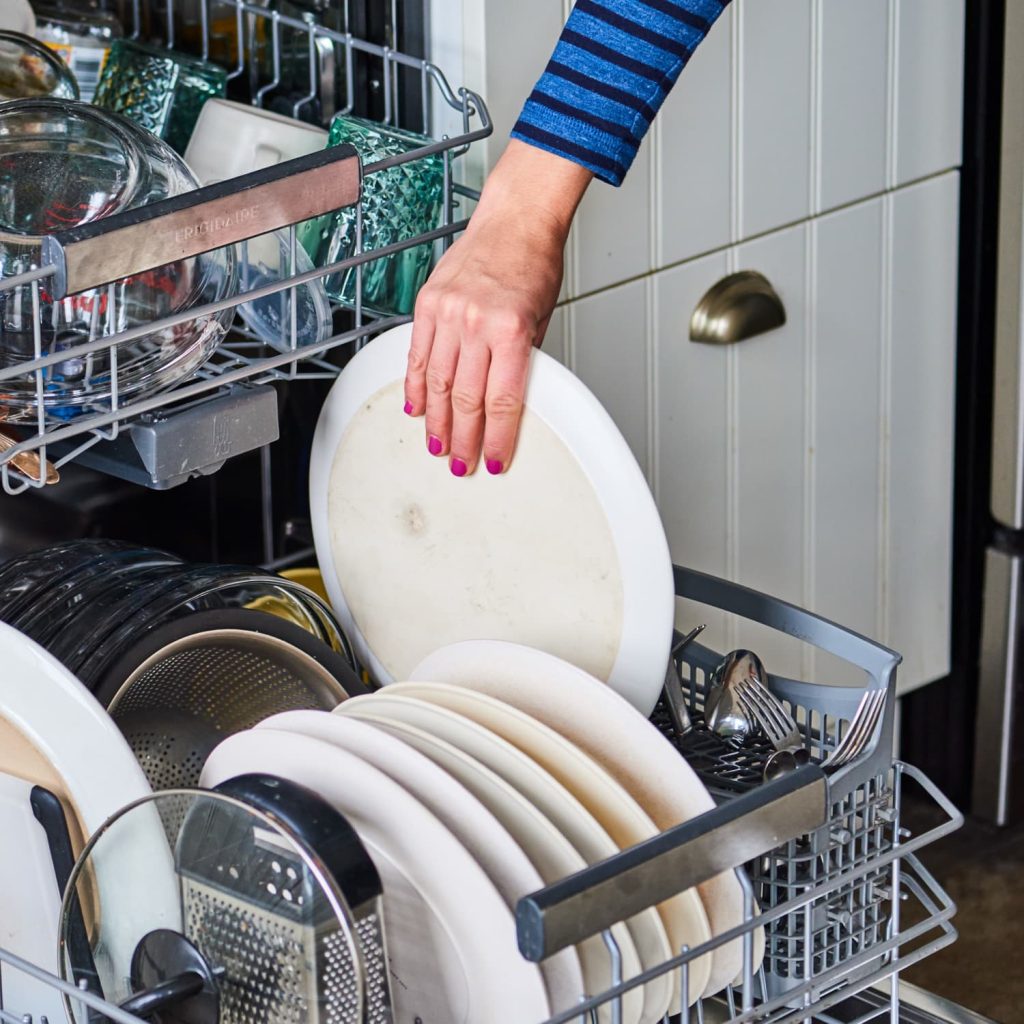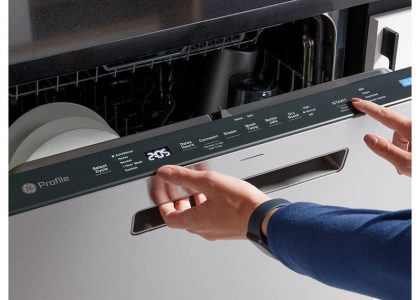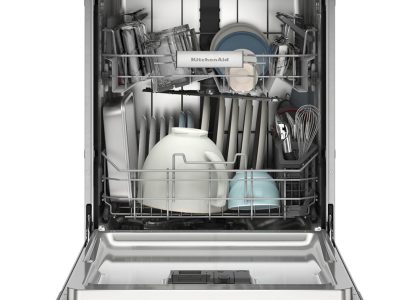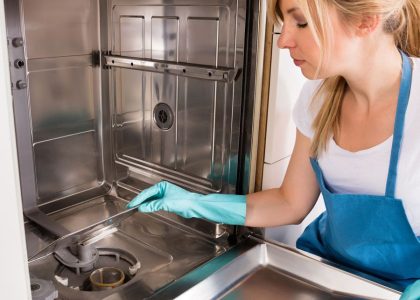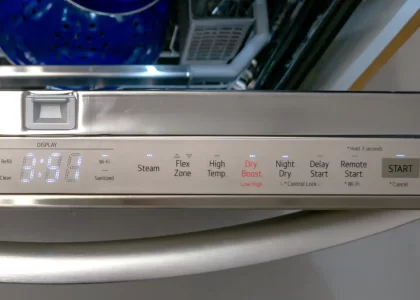Common Reasons Your Dishwasher Isn’t Cleaning
Why is my dishwasher not cleaning my dishes? Encountering a dishwasher that won’t clean dishes can be frustrating. This issue can stem from a few sources. Understanding these common problems will help you get your dishwasher back in top shape. Here are some typical reasons why your dishwasher might not be cleaning your dishes effectively.
Dirty Interior and How to Clean It
A buildup of grease, food particles, and soap scum can hinder your dishwasher’s performance. To tackle a dirty interior, start by cleaning with vinegar. Pour 3 cups of white vinegar into the dishwasher and run a full cycle. For tougher grime, scrub the interior walls and racks.
The Role of the Dishwasher Filter
Filters trap food debris during the wash cycle. If your dishwasher is new, you may need to clean the filter manually. Twist off the cap below the bottom rack, rinse the filter with hot water, and scrub away any residue. Regular cleaning keeps the filter from clogging.
Troubleshooting a Clogged Spray Arm
Spray arms dispense water but can clog over time. Clean them by removing any debris from the jets with a toothpick. Then, rinse the arms with hot water and reattach them. This ensures a strong flow of water during the wash cycle.
Solutions for a Broken Soap Dispenser
A faulty soap dispenser can prevent detergent from reaching your dishes. Use a small brush to clean around the dispenser and remove any trapped residue. If the spring is broken or the dispenser door won’t open, you may need to replace the dispenser to ensure proper detergent release.
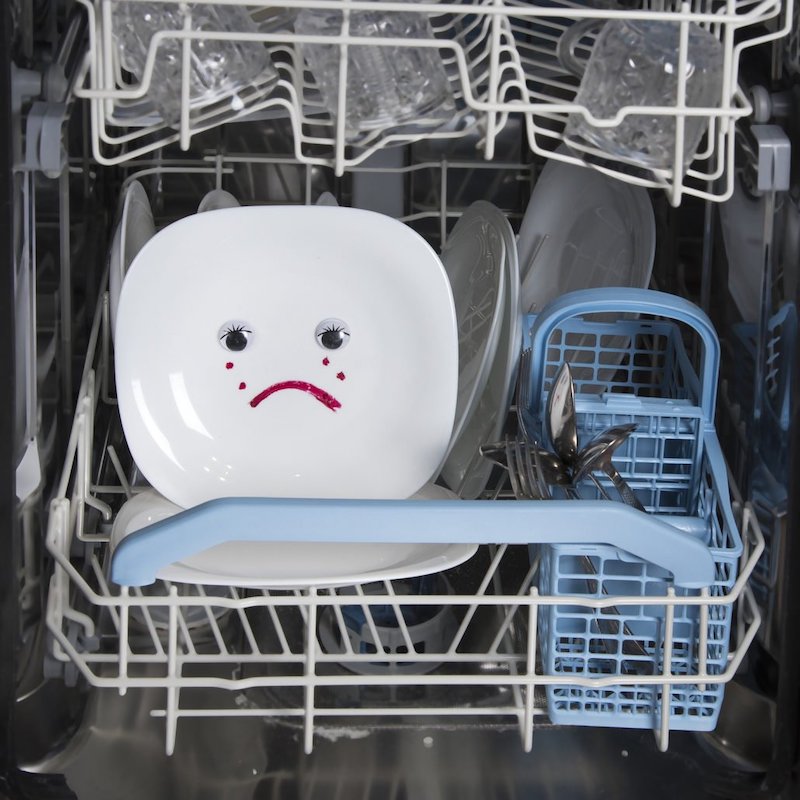
Ensuring Optimal Water Conditions for Dishwashing
Water conditions play a crucial role in how well your dishwasher cleans. Ensuring you have optimal water conditions can make a big difference in your dishwashing results. Let’s explore several aspects of water quality and how they affect dishwashing performance.
The Importance of Correct Water Temperature
For effective cleaning, water in the dishwasher must be hot enough. The magic number is at least 120 degrees Fahrenheit. This heat helps to dissolve food residue and grease. If your dishwasher lacks a built-in heater, check your home’s water heater setting. Be careful not to exceed 120 degrees to avoid scalding. Before running the dishwasher, turn on the kitchen faucet. This allows hot water to enter the dishwasher straight away.
Detergent Choices and Dosage for Clean Dishes
Choosing the right detergent is vital for spotless dishes. Low-quality detergents might leave spots or residue. Use a high-quality detergent and measure the correct amount. Too little won’t clean well, and too much can cause buildup. If your water is hard, consider a detergent with water softening agents or add a rinse agent to the final cycle.
Water Volume and Pressure Adjustments
Your dishwasher needs adequate water pressure to function well. Low pressure may mean it’s not filling properly. Check if the water pressure in your faucets is also low. This could signal a broader issue in your home’s plumbing. If the issue is just with your dishwasher, the inlet valve could be the problem. Ensure that it’s working correctly and isn’t blocked or damaged. If necessary, seek professional help to resolve these issues.
Preventative Maintenance and Regular Upkeep
Adopting a regular maintenance routine can prevent dishwasher issues. Consistent upkeep keeps your machine running smoothly. Let’s dive into some necessary maintenance steps.
Routine Cleaning Tips for Your Dishwasher
Your dishwasher needs cleaning to work best. Monthly, run an empty cycle with white vinegar. This helps dissolve soap scum and limescale. Weekly, wipe the edges and door seals with a damp cloth. Don’t forget to check and clean the filter and spray arms.
Regular Checks for the Inlet Valve and Spray Arms
Check the inlet valve and spray arms routinely. A noisy dishwasher might signal a faulty inlet valve. Similarly, if dishes stay dirty, spray arms might be clogged. Look for debris or blockage. Clear any obstructions to ensure proper water flow.
When to Replace Wearable Parts like Gaskets and Filters
Some dishwasher parts wear out over time. Examine gaskets and filters every few months. If you find cracks or damage, replace them. This keeps your dishwasher sealing properly and filtering effectively. Always follow the manufacturer’s guidelines when replacing parts.
Dishwasher Loading Techniques
Learning the right way to load your dishwasher can greatly improve its cleaning ability. It’s not just about space efficiency; it’s about allowing water and detergent to reach every dish.
Best Practices for Loading Your Dishwasher
Here are tips for maximizing dishwasher performance:
- Place glasses and mugs between tines, not over them, to prevent water spots.
- Put plates and larger items on the bottom rack, facing the spray arm for better water access.
- Ensure that the dishwasher filter isn’t blocked by large pots or pans.
- Avoid nesting spoons and forks; mix them to help water flow between them.
- Load plastic containers on the top rack to prevent them from warping.
- Check that spinning spray arms can move freely without hitting any dishes.
These tips help make sure that every nook and cranny gets a thorough wash.
How Incorrect Loading Affects Dishwasher Performance
Improper loading can lead to unwashed or damaged dishes. Here’s what can go wrong:
- Overcrowded racks prevent dishes from being cleaned and rinsed properly.
- Incorrectly placed utensils can block spray arms, leading to poor cleaning.
- Large items placed in the wrong position can keep detergent from reaching all dishes.
- If the dishwasher is unevenly loaded, it can cause leakage or damage to the unit.
Correct dishwasher loading isn’t just about clean dishes; it protects your dishwasher’s life span and ensures the best performance. Following these simple loading strategies can save time and frustration with dishes that aren’t clean after a cycle.
Professional Versus DIY Repair Solutions
Dealing with a dishwasher that is not cleaning your dishes can sometimes be a DIY fix. Other times, it may require professional help. Knowing when you can handle the problem or when to call in the experts can save you time and money.
Simple Fixes You Can Do Yourself
There are several troubleshooting steps you can take before calling a professional:
- Check the dishwasher filter and clean it if it’s dirty.
- Inspect the spray arms for clogs and clear any debris.
- Clean the interior with vinegar to remove build-up.
- Make sure the detergent dispenser works and isn’t blocked.
- Verify that the dishwasher is getting hot water and check the temperature.
- Look at the water inlet valve for any signs of malfunction.
These steps often resolve common dishwasher issues. They are simple and don’t require special tools or skills.
When to Call the Professionals for Dishwasher Repairs
There are times when you may need to seek help from a professional. Call for service if you encounter these issues:
- The dishwasher makes unusual noises, which could indicate a bigger problem.
- You see water leaks, which could damage your home.
- Dishes remain dirty even after trying all DIY solutions.
- You’re unsure about how to proceed with a repair.
- The problem involves electrical or complex mechanical components.
Professional technicians have the tools and expertise to safely and efficiently fix these problems. Don’t hesitate to contact them when you feel the repair is beyond your abilities.
Upgrades and Enhancements for Dishwasher Performance
Why is my dishwasher not cleaning my dishes? Enhancing your dishwasher’s performance may require more than regular maintenance. Upgrades can drastically improve how well your machine cleans. Let’s look at two popular enhancements and their benefits.
The Impact of Water Softeners on Cleaning Efficacy
Hard water is a common culprit behind spotty and unclean dishes. It contains minerals that can leave residues and reduce soap effectiveness. Installing a water softener can combat these issues. Soft water allows detergents to work better, resulting in cleaner dishes. Plus, it helps to prevent scale buildup inside your dishwasher. This only makes maintenance easier, but also extends the life of your appliance.
Advancements in Dishwasher Detergents and Rinse Aids
Why is my dishwasher not cleaning my dishes? Dishwasher detergents have come a long way. They’re now more efficient and eco-friendly. Modern detergents pack more cleaning power into less product, which reduces waste. Opt for a detergent with enzymes that break down food residues. These detergents work well even at lower temperatures. Rinse aids have also improved. They help prevent water spots and make sure your dishes come out dry and shiny. Using these advanced products will help get your dishes cleaner, while also being mindful of the environment.

